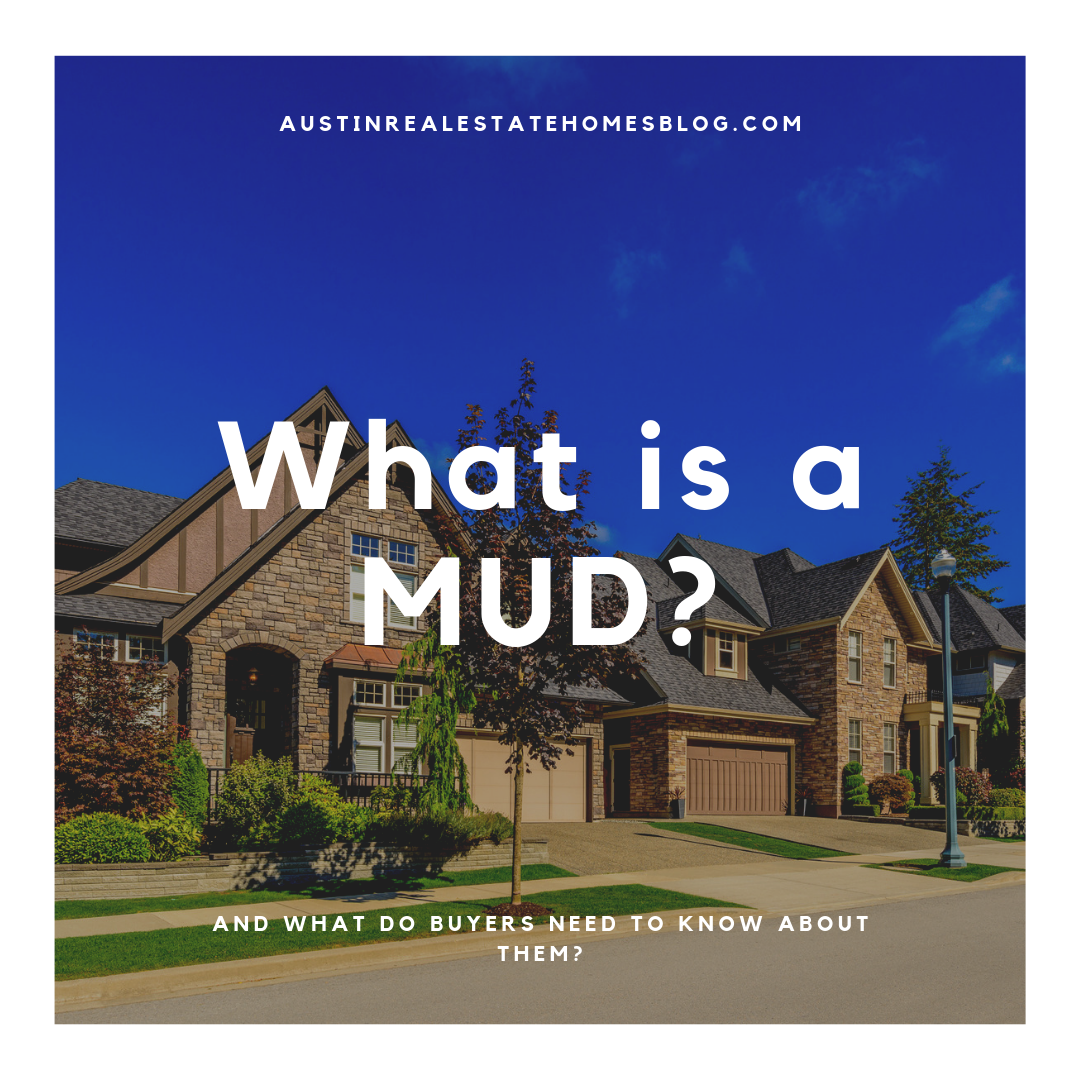
A Municipal Utility District commonly referred to as a MUD is a special purpose political subdivision of the State of Texas authorized by the Texas Water Code (TWC) to provide water, sewage and drainage. A MUD can levy taxes, charge for services and issue debt for infrastructure within a well defined geographical area. MUD’s are created when there are no city utilities where they are cutting a new subdivision. Rather than the first buyer paying for the entire cost of putting in the utilities, these costs are levied as a part of the property tax and paid over several years. You can find out if the property you are considering is in a MUD on the property tax records or from the Sellers Disclosure Notice.
How are MUDs Created?
MUDs are created as follows:
- A majority of property owners in the proposed district petition the TWC;
- The TWC evaluates the petition, holds a public hearing;
- Then the TWC decides whether to grant the petition;
- Upon approval, the TWC appoints 5-temporary members to the MUD’s Board of Directors, until election is called to elect permanent members;
- After confirmation of the MUD’s creation, it is financed by social assessment bonds. The bond funds are however funded by residents who must pay a MUD tax.
How are MUD’s Managed and Controlled?
The publicly elected Board of Directors manages and controls all the affairs of the MUD subject to the supervision of the TWC. The Board establishes policies in the best interests of its residents and utility customers. The MUD may adopt and enforce necessary charges, fees and taxes in order to provide district facilities and service.
How Much are MUD Taxes?
MUD tax rates vary according to property values and debt requirements, but rates generally decline over time as the MUD development is built our and operating and debt service expenses are allocated to more homeowners.

What Else Can a MUD Govern and/or Fund?
In addition the water and wastewater service, MUD are legally authorized to engage in conservation, irrigation, electric generation, firefighting, and solid waste collection and disposal, and the operation of recreational facilities such as parks, swimming pools and sports courts. A MUD can provide for itself the recreational amenities that are approved by its Board of Directors and funded by the District.
Who is Prohibited from Being a MUD Board Member?
Subdivision developers must petition the Texas Water Commission to create a Municipal Utility District. Developers are prohibited from serving or placing employees, business associates, or family members on the MUD Board of Directors.
The 30% Rule
Developers must either pay for or deposit a letter of credit equal to 30% of the cost of subdivision utilities. This requirement ensures against “fly-by-night operators” who are not committed to the success of the MUD. The 30% rule also affords protection to MUD residents in the event the subdivision is not built according to schedule. Unless they are voting residents within a MUD, developers have no authority or control over the MUD’s Board of Directors. If they are voting members of a district. they have the same power to vote and attend Board meetings as any other resident.
Buying a Home in a MUD?
If you are considering the purchase of a property in a MUD’s jurisdiction, ask for a copy of the rules governing its activities. Ask HOA members about their experiences and solicit their opinions. It’s in your best interests to be as fully informed as possible.
Thinking of Buying a Home in Austin?
Choose a Realtor who is knowledgeable about the Austin real estate market and can help you evaluate what you’re buying. Our team of Austin Realtors specialize in representing buyers and have for the past 40+ years. Check out our Austin Home Buyers page to learn more about who we are and how we’re different. Then, call us at (512) 827-8323 or email us at info@11OaksRealty.com to schedule a no obligation conversation.
Leave a Reply